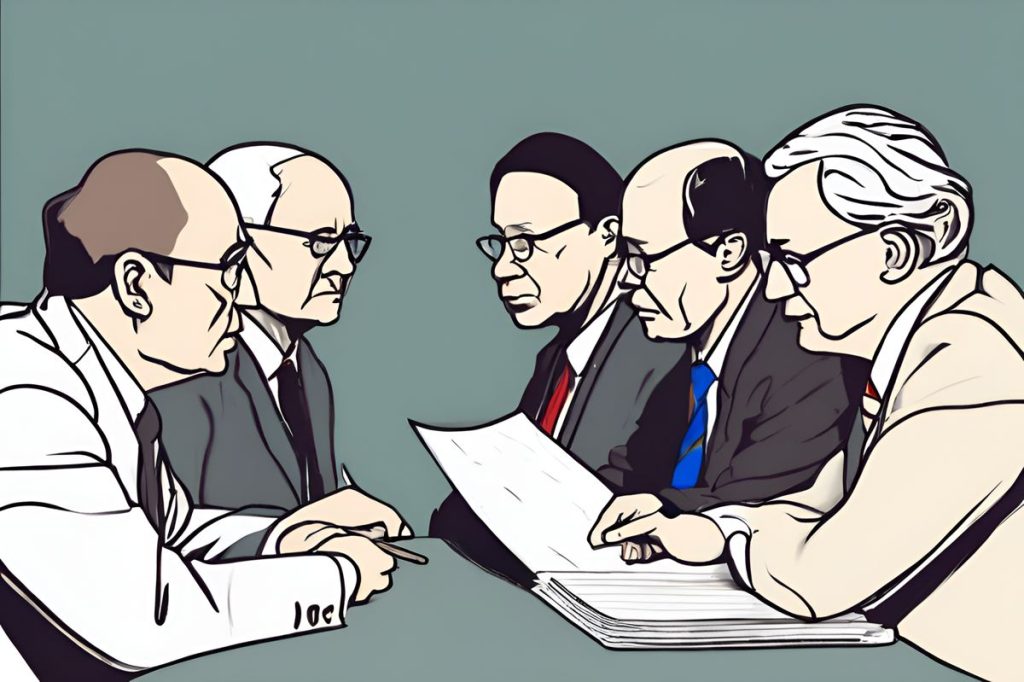The UN is actively involved in promoting peace in Cyprus’ buffer zone through technical committees addressing shared concerns, striving for a lasting solution. Colin Stewart’s briefings emphasize the UN’s commitment and ongoing work to mitigate tensions and foster dialogue in the region.
What is the current status of the UN’s involvement in the Cyprus buffer zone?
The UN actively supports peace in the Cyprus buffer zone through 12 technical committees addressing shared concerns, such as resource management and cultural heritage. Despite challenges, these efforts aim to mitigate tensions, foster dialogue, and strive for a lasting solution to the island’s division. Colin Stewart’s briefings to the diplomatic community emphasize the UN’s commitment and ongoing work.
Introduction to the Situation
The United Nations has been actively involved in the longstanding and complex situation in Cyprus, specifically within the so-called ‘buffer zone.’ This area has been a point of contention and delicate diplomacy since the island’s division. Special Adviser to the UN Secretary-General on Cyprus, Colin Stewart, recently initiated a series of engagements with the diplomatic community to shed light on the ongoing efforts and developments related to this region.
In anticipation of a formal briefing to the Security Council set for July, these preliminary discussions are crucial. They provide an invaluable opportunity for diplomats to gain insights into the UN’s strategies and the current atmosphere on the ground. Mr. Stewart’s dialogues with international representatives underscore the United Nations’ commitment to finding a peaceful and sustainable resolution to the island’s divisions.
UN’s Active Role and Technical Committees
The United Nations maintains its presence and active role in Cyprus, particularly through the creation and support of 12 technical committees. These committees are instrumental in addressing a multitude of shared concerns that affect both communities on the island. From the management of natural resources to cultural heritage preservation and crisis management, the technical committees serve as platforms for cooperation and problem-solving.
The briefing given by Colin Stewart provided an update on the conditions within the buffer zone—areas of cooperation, tension, and progress. Highlighting these activities is vital for maintaining transparency with the international community and for ensuring continued support for the UN’s initiatives in Cyprus. The work of these committees demonstrates the potential for collaborative efforts between the divided communities, aiming to create a foundation for trust and, ultimately, a more permanent solution.
Ongoing Challenges and Efforts
While the UN’s work and the cooperation between communities in Cyprus show promise, challenges persist. The buffer zone remains a sensitive area, both politically and socially. Efforts by the UN and other stakeholders are ongoing to mitigate tensions and to encourage dialogue between the conflicting sides. These efforts are critical in preventing any escalation of disputes and in promoting a stable and peaceful environment on the island.
Colin Stewart’s briefing and subsequent discussions are set against this backdrop of complexity. They reflect the UN’s proactive stance in not only managing the buffer zone’s issues but also in striving for a comprehensive and lasting resolution to the island’s division. As the world awaits the Security Council’s briefing in July, the diplomatic community and the UN continue their vigilant work in this regard.
Looking Forward
The diplomatic engagements led by Colin Stewart come at a time when the need for effective communication and cooperation on Cyprus is more pressing than ever. With the upcoming Security Council briefing, the international community looks to the United Nations for guidance and leadership in navigating the intricacies of the Cyprus problem.
The situation in the buffer zone and the broader context of Cyprus’ divided status remain high on the agenda for all involved parties. As developments unfold and the efforts of the technical committees advance, the diplomatic community, guided by updates from UN representatives like Mr. Stewart, will play a pivotal role in shaping the future of the island and its people.
What is the current status of the UN’s involvement in the Cyprus buffer zone?
The UN actively supports peace in the Cyprus buffer zone through 12 technical committees addressing shared concerns, such as resource management and cultural heritage. Despite challenges, these efforts aim to mitigate tensions, foster dialogue, and strive for a lasting solution to the island’s division. Colin Stewart’s briefings to the diplomatic community emphasize the UN’s commitment and ongoing work.
What role do the technical committees play in addressing shared concerns in Cyprus?
The technical committees created by the UN in Cyprus play a crucial role in addressing a wide range of shared concerns between the divided communities on the island. These committees focus on issues such as natural resource management, cultural heritage preservation, and crisis management. By providing platforms for cooperation and problem-solving, the technical committees are instrumental in fostering dialogue and collaboration in the buffer zone.
What ongoing challenges does the UN face in managing the buffer zone in Cyprus?
Despite the UN’s efforts to promote peace and dialogue in the buffer zone, challenges persist in Cyprus. The region remains politically and socially sensitive, requiring continuous efforts to mitigate tensions and prevent escalations of disputes. The UN, along with other stakeholders, continues to work towards fostering a stable and peaceful environment on the island through dialogue and cooperation between the conflicting sides.
What is the significance of Colin Stewart’s briefings to the diplomatic community regarding the Cyprus situation?
Colin Stewart’s briefings to the diplomatic community play a crucial role in providing updates on the conditions within the buffer zone, areas of cooperation, tension, and progress. These briefings help maintain transparency with the international community, garnering support for the UN’s initiatives in Cyprus. By highlighting the ongoing efforts and challenges in the region, Stewart’s dialogues underscore the UN’s commitment to finding a peaceful and sustainable resolution to the divisions on the island.

